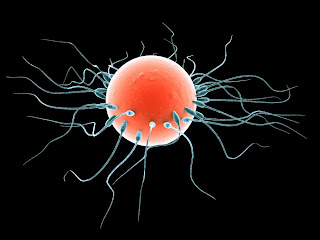 Everyone knows someone who has gotten pregnant while on the pill.
Everyone knows someone who has gotten pregnant while on the pill.
Even though the pill is 99 percent effective in preventing pregnancy, between 2 and 8 percent of women become pregnant each year while using it.
So what happens? Doctors say it’s not the pill that’s failing women, but women failing the pill.
“The biggest thing that we know of, that affects the efficacy of the pill, is misuse by patients who do not follow the program as prescribed,” said Dr. Millicent Comrie, founder and director of the Long Island College Hospital Center for Women’s Health and vice chairman of the college’s Department of Obstetrics and Gynecology.
FOXNEWS has put together this list of five things that may cause the pill to become less effective or even fail: 1.) Not taking the pill at the same time every day. Because of health concerns, the level of estrogen in birth control pills has been significantly decreased since it was first introduced in the U.S. in 1960. Modern pills, often referred to as “low-dose” pills, contain about 20 micrograms of estrogen, which is less than half the 50 micrograms pills once contained. Because of this, it’s more important than ever that woman take their pills everyday at the same time, said Comrie.2.) Missing a dose. Worse than not taking the pill at the same time every day is missing a day, said Comrie.“Once you miss one pill, you should double up,” Comrie said. “And if you have any kind of breakthrough bleeding, you should use a condom. With the lose-dose pills, you have to be very careful when you miss a dose.”
3.) Alcohol. That’s right, that glass of wine with dinner or that fruity alcoholic beverage you enjoy on a lazy summer day may reduce the effectiveness of the pill. Why? Because alcohol is metabolized by the liver and any drug that affects the liver may also affect the way the pill is absorbed by the body.
“This is especially true for heavy drinkers,” Comrie said. “Once you take something that affects the liver, you weaken the effects of the pill.”
4.) Antibiotics/seizure medication. Neurological medication, especially seizure medication, like Dilantin and carbamazepine, may reduce the effectiveness of the pill, said Dr. Jacques Moritz, director of gynecology at Roosevelt Hospital in New York City.
“Antibiotics are also a problem,” he said, “but more of a problem because the pill is now so low dose.”
But Comrie said antibiotics aren’t as big of a concern as they once were.
“There have been studies that show that although antibiotics affect the excretion of (the pill), the blood levels are not affected,” she said. “So this is almost becoming a myth.”
5.) Taking a generic form of the pill. Generic pills may save money, but “they do not contain the same amount of medicine as their name-brand counterparts,” Moritz said.
“The FDA allows for a 15 percent variation in generic medications,” he said. “Again this is a concern because the pills are now so low dose. So women should be especially cautious and use a back-up, such as a condom, if they are put on any medication that may interfere with the pill.”






